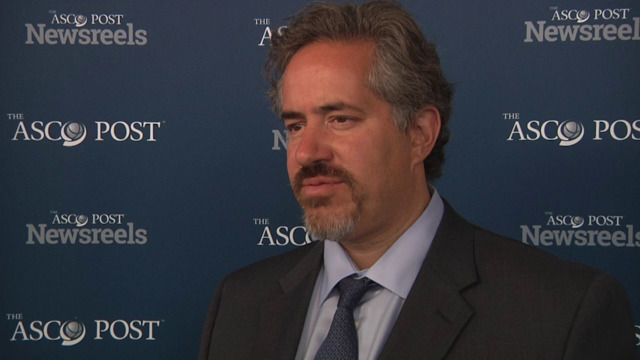Anil D'Cruz, MD, on Elective Neck Dissection in Node-Negative Early Oral Cancer
2015 ASCO Annual Meeting
Anil D’Cruz, MD, of Tata Memorial Hospital, discusses results from his study that seem to resolve a 50-year-long debate on performing elective neck dissection at the time of primary surgery––a potentially practice-changing finding (Abstract LBA3).
Ruben A. Mesa, MD
Ruben A. Mesa, MD, of the Mayo Clinic, discusses pacritinib and its significant efficacy in myelofibrosis (Abstract LBA7006).
Eric Van Cutsem, MD, PhD, and Axel Grothey, MD
Eric Van Cutsem, MD, PhD, of University Hospitals Gasthuisberg/Leuven, and Axel Grothey, MD, of the Mayo Clinic, discuss the Italian-led study on trastuzumab and lapatinib in HER2-amplified metastatic colorectal as well as other colorectal cancer findings discussed at ASCO (Abstract 3508).
Asher Alban Chanan-Khan, MD
Asher Alban Chanan-Khan, MD, of the Mayo Clinic Cancer Center, discusses an important treatment option that significantly improved overall response rate and reduced risk of progression or death by 80% (Abstract LBA7005).
Gregory T. Armstrong, MD, MSCE, and Lisa Diller, MD
Lisa Diller, MD, of Dana-Farber Cancer Institute, and Gregory T. Armstrong, MD, MSCE, of St. Jude Children's Research Hospital, discuss the findings of a landmark survivorship study (Abstract LBA2).
Ruben A. Mesa, MD, and James O. Armitage, MD
James O. Armitage, MD, of The University of Nebraska Medical Center, and Ruben A. Mesa, MD, of the Mayo Clinic, discuss pacritinib and its significant efficacy in myelofibrosis (Abstract LBA7006).





